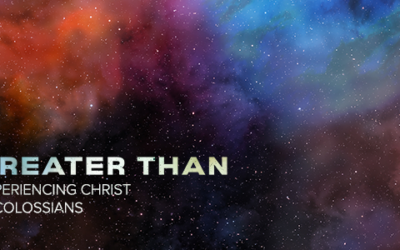Day 3
Lisa Sheffler, author
Yesterday, we discussed the ancient practice of idol worshippers. In parts of the ancient world, Idols were created to stand as the image and likeness of a ruler (who was often thought of as a lesser god) and the god he served. In ceremonies performed by pagan priests, those worshippers believed that the deity would inhabit the idol. In turn, the idol claimed territory for the deity.
Yet, Genesis teaches the true relationship between humans and God. Human beings, not the idols they make, were created in God’s image and likeness, and were given the honor of representing him in his creation. For worshippers of the one, true God to turn to idols was an affront to God and his purpose. To bow before any idol denies what it means to be human at the most fundamental level and dishonors the true God who created people with such love.
Today, we’re going to continue thinking through the gravity of idol worship. To bring offerings to a false god rejects the goodness and faithfulness of the true One. We’re going back to the Old Testament to hear from the prophet Jeremiah.
Read
Jeremiah 2:1–2; 5–7; 10–13
2 The word of the Lord came to me: 2 “Go and proclaim in the hearing of Jerusalem:
“This is what the Lord says:
“ ‘I remember the devotion of your youth,
how as a bride you loved me
and followed me through the wilderness,
through a land not sown.
…
5 This is what the Lord says:
“What fault did your ancestors find in me,
that they strayed so far from me?
They followed worthless idols
and became worthless themselves.
6 They did not ask, ‘Where is the Lord,
who brought us up out of Egypt
and led us through the barren wilderness,
through a land of deserts and ravines,
a land of drought and utter darkness,
a land where no one travels and no one lives?’
7 I brought you into a fertile land
to eat its fruit and rich produce.
But you came and defiled my land
and made my inheritance detestable.
…
10 Cross over to the coasts of Cyprus and look,
send to Kedar and observe closely;
see if there has ever been anything like this:
11 Has a nation ever changed its gods?
(Yet they are not gods at all.)
But my people have exchanged their glorious God
for worthless idols.
12 Be appalled at this, you heavens,
and shudder with great horror,”
declares the Lord.
13 “My people have committed two sins:
They have forsaken me,
the spring of living water,
and have dug their own cisterns,
broken cisterns that cannot hold water.
Jeremiah 3:8–10 (NIV)
8 I gave faithless Israel her certificate of divorce and sent her away because of all her adulteries. Yet I saw that her unfaithful sister Judah had no fear; she also went out and committed adultery. 9 Because Israel’s immorality mattered so little to her, she defiled the land and committed adultery with stone and wood. 10 In spite of all this, her unfaithful sister Judah did not return to me with all her heart, but only in pretense,” declares the Lord.
Ask Yourself
- What acts of faithfulness to Israel did God (through Jeremiah) list?
- What point is God making in Jeremiah 2:13? Why would seeking favor from a worthless idol be insulting to God?
- What metaphor does Jeremiah 2:1 and 3:8–10 use to describe the relationship between God and Israel? How does that help you understand the sin of idolatry?
Reflect
Jeremiah spent his forty-years of ministry preaching to stubborn, stony, idolatrous hearts. Despite all God had done to create, redeem, establish, protect, and provide for his people, and even with all the warnings he has sent through the prophets, his people had abandoned him and sought protection and prosperity from the false “gods.” Jeremiah communicated God’s anguish and anger over the people’s unfaithfulness.
Notice how Yahweh characterizes the relationship he has with his people using marriage as a metaphor. The relationship between committed spouses is one of intimate devotion. Marriage is meant to be unbreakable, life-long covenant. If you talk to a husband or wife who has been abandoned or cheated on, they will describe the devastating pain of rejection, betrayal, and broken trust.
You can sense God’s pain and anger in Jeremiah’s prophesy. How could the Israelites have forgotten the blessings of Yahweh’s steadfast and loyal love (Jeremiah 2:7)? How could they leave him for worthless idols — broken cisterns that hold no water (Jeremiah 2:13)? Even those from the surrounding nations who worship false gods stay loyal to them (Jeremiah 2:11).
Yet Israel, who experienced the power and protection of the true God turned from him. They abandoned their bridegroom, and now he would give them what they thought they wanted — a divorce. The ten northern tribes that made up the original nation of Israel had been scattered in exile. Now Judah, the remnant of nation was in danger of the same fate because of her lack of true devotion. The people’s hearts were still captive to idols.
Pagan worshippers served their gods by sacrificing to their idols in hopes of receiving his or her blessings. Yet, it was well known that the gods were fickle and there was no guarantee that they would grant a request. They were notoriously untrustworthy. Yahweh has proven himself faithful. His loyal love to humanity motivated the greatest act of love ever known — Jesus’ incarnation, death, and resurrection. Jesus is the way, the truth, and the life (John 14:6).
In his conversation with the Samaritan woman at the well, Jesus offers her living water. He tells her, “whoever drinks the water I give them will never thirst. Indeed, the water I give them will become in them a spring of water welling up to eternal life” (John 4:14).
Idols are broken cisterns that hold no water. They demand much, but what they offer will never satisfy our thirst. We sacrifice our time, talents, and treasure for dust. So, why do we turn to them? Why do we betray the God who gives us life and pursue worthless idols?
Over the next few weeks, let’s commit to asking ourselves the hard questions about the idols we worship. And to clean our dusty mouths and satisfy our thirst, let’s drink deeply from the living water our loving Savior offers.
Pray
Worship your Savior in prayer right now. Remember how much he loves you and what he has done for you. Find a way to express your devotion to him. Write a prayer of gratitude. Turn on some praise music and sing to your God. Take a walk outside and praise God for the glory of his creation. He is worthy of all our praise and devotion.
Then ask the Spirit how you can show your devotion. Who can you tell about the amazing things God has done for you? Could you demonstrate your love for God by giving your time or money to someone in need? Pray over some ideas that come to mind.
Talk about it
- Based on what we’ve studied yesterday and today, discuss our guiding question for the week, “why is idolatry such a grievous sin?”
When you are committed to someone, you make their priorities yours. Discuss some tangible ways we can demonstrate our love for God by prioritizing what he does.


